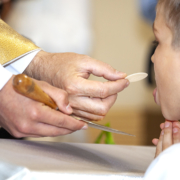Three college students who first met while attending a Catholic high school in Florida have launched a scholarship fund to help others experience faithful Catholic education at a Newman Guide college.
“As we went off to different colleges, we kept in touch and found time to catch up whenever we returned home for school breaks. During one of those breaks, we began to discuss ways the three of us could work together to build up the Kingdom of God,” explained Matthew Uzdavinis. “We all wanted to serve the Church in some specific way.”
The fruit of the discussions between Uzdavinis, Justin Bailey and Andres Donovan is the Saint Robert Bellarmine Fund, which annually awards scholarships to 10 high school seniors who display both merit and need and wish to attend one of the Catholic colleges recognized by The Cardinal Newman Society for fidelity and strong Catholic formation. The $8,000 scholarships are renewable for four years. The fund is guided by the Bailey Family Foundation, a philanthropy devoted to improving the availability and quality of post-secondary education.
“When we started the Saint Robert Bellarmine Fund, the three of us were convinced we wanted to focus solely on promoting and making Catholic higher education possible,” said Uzdavinis. “However, we didn’t want to lead students to secularized Catholic colleges that do not teach the fullness of the Catholic faith and perhaps even purposely sway young people from what the Church has taught for centuries.”
“In such places, divine truth is set aside for radical ideologies and socially progressive propaganda, as if truth were somehow outdated and left behind for something better,” Uzdavinis lamented. “It’s a tragedy when this occurs, because when truth is abandoned, delusion sets in. We see this everywhere in our world today.”
“The Cardinal Newman Society’s list of recommended colleges is, in our opinion, the best catalogue of authentically Catholic colleges in the country,” Uzdavinis explained. “We decided to limit our scholarship opportunity to students who want that truly faithful Catholic education for themselves.”
The Saint Robert Bellarmine Fund will be an answer to prayer for many Catholic families eager to experience faithful Catholic higher education.
“We hope to help Catholic families throughout the country who could use the financial assistance,” Uzdavinis explained. “We know from personal experience higher education can be expensive, but we’ve discovered a treasure in faithful Catholic education and this fund is designed to share that treasure with others.”
Building from experience
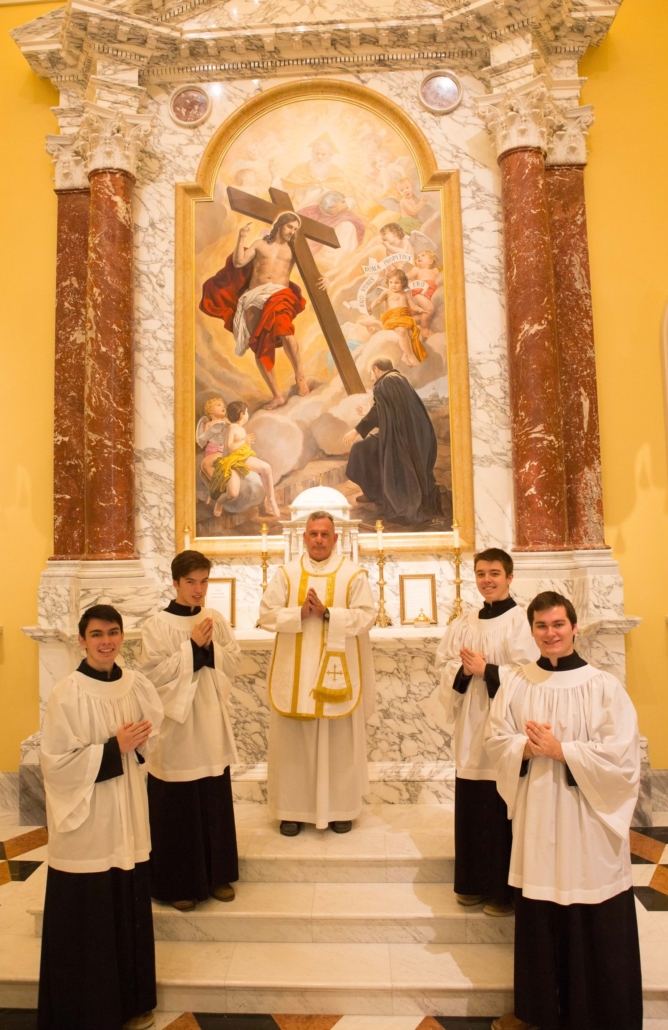 The Bellarmine Fund’s founders recall their wonderful experience of Catholic education at Jesuit High School in Tampa, Fla.
The Bellarmine Fund’s founders recall their wonderful experience of Catholic education at Jesuit High School in Tampa, Fla.
“The bell rang and down the aisle came about 10 altar boys all neatly arranged with cassock and surplice, incense, golden torches—all the smells and bells of Catholic liturgy. At that time, I had just graduated eighth grade and wasn’t versed or interested in the faith, but this procession on my very first day at my new high school caught my attention,” remembers Uzdavinis.
“The beauty and reverence of the liturgy was unlike anything I had ever seen before, and it transferred into the way theology was taught in the classroom by our teachers,” Uzdavinis continued. “From that point on, the relationships I cultivated with priests, seminarians, teachers and other students grew because they were all grounded in an awe and love for the authentic Catholic faith.”
Uzdavinis became “great friends in the Lord” with Bailey and Donovan, who were impacted by similar experiences.
“I remember having teachers at Jesuit High School who would sit with me after school for long periods of time, explaining the faith. I was shocked to discover the Church always had answers to questions I thought problematic. It strengthened my faith immensely,” shared Bailey.
Donovan agreed: having teachers who were “firm in their faith” was instrumental in his life and in his decision to attend Franciscan University of Steubenville in Steubenville, Ohio, a faithful Catholic college recognized by The Newman Guide.
“All of my teachers since arriving at Franciscan have stressed the importance of allowing my faith to be integrated into every aspect of my studies. They have taught me to be proud that I am Catholic and to think for myself. I want every Catholic to be encouraged to integrate their faith into every part of their lives,” urged Donovan.


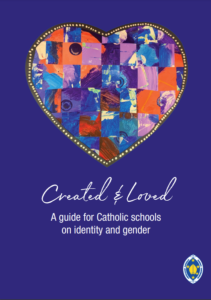
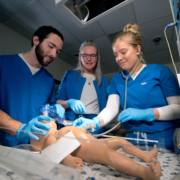
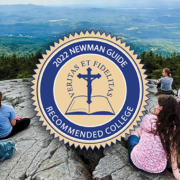

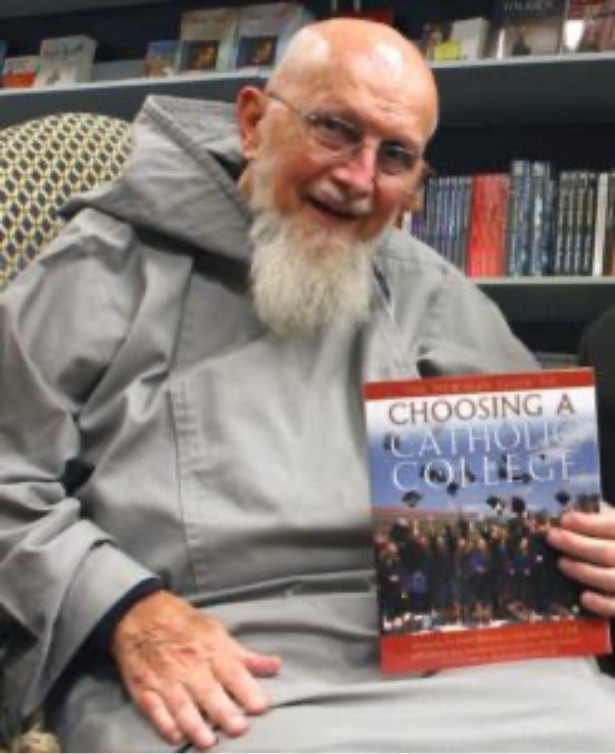 The late Father Benedict Groeschel, CFR, wrote the preface to the first edition of The Newman Guide and said it was the Newman Society’s “most important contribution to Catholic higher education ever.” Newman Guide college leaders today confirm that the guide has been instrumental in their success.
The late Father Benedict Groeschel, CFR, wrote the preface to the first edition of The Newman Guide and said it was the Newman Society’s “most important contribution to Catholic higher education ever.” Newman Guide college leaders today confirm that the guide has been instrumental in their success.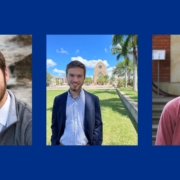
 The Bellarmine Fund’s founders recall their wonderful experience of Catholic education at Jesuit High School in Tampa, Fla.
The Bellarmine Fund’s founders recall their wonderful experience of Catholic education at Jesuit High School in Tampa, Fla.